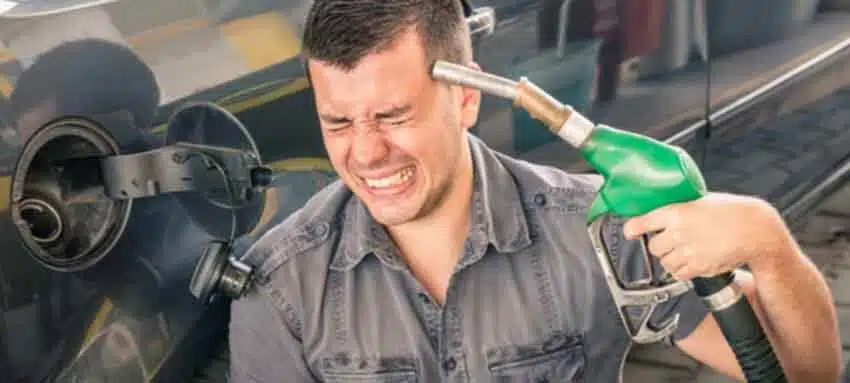
The Real Reason For High Petrol Prices
Petrol prices are and always will be a stress factor for all South Africans. News of price changes in fuel spreads like wildfire among us making headlines in almost every single conversation. Sometimes even taking preference over general water cooler gossip!
Alternative forms of transport are becoming much more preferred to driving around in cars with the alarming increases we are faced with. People are forming lift clubs and carpools where others are becoming comfortable with trains and minibus taxis. Sadly, this is not a sure fire way of avoiding the costs of fuel, as trains, taxis and carpooling prices will still be dependent on fuel costs. The price of fuel might leave some of us daydreaming about the good ole days of horse and carriages although we do foresee a couple of problems- horse sitting job anyone?
If you are sick of paying too much for Car Insurance and don’t have the time to source quotes, let The Panda do it for you in 5 minutes!
Why does the price of petrol go up?
When basic fuel prices increase, it is generally a result of fuel levy increases. What does this mean? This is the portion of the money that gets given to the National Treasury for each litre of fuel we buy. Many factors affect the percentage paid toward the Fuel Levy such as the exchange rate and national petroleum prices. Once again, the consumer in South Africa is penalised when anything around the world changes. I’m wondering when it’s the governments time to feel these penalties.
“The basic fuel price is generally calculated based on costs incurred around shipping the fuel to South Africa where it is needed.” – says AA
When we go to fill up our tanks we do not often wonder, what are the actual costs undertaken to get those pumps filled up for usage.
The Basic Fuel Price costs cover everything from:
- Wharfage (loading/unloading of fuel)
- Storage
- Insurance
No time to get an online Car Insurance quote? WhatsApp us on 061 735 7418
These points alone cost around R6.22 (subject to change) per litre of 95 unleaded(inland), based on statistics from Feb 2017.
Additional costs in the price of petrol include (in order of highest cost weighting):
- Fuel levy – money given to the government
- Wholesale and Retail margins – the margin wholesalers and retailers(petrol stations) make on fuel.
- RAF levy – The Road Accident is insurance supported by the government. You can claim from the fund if the accident wasn’t solely your fault. Claims include medical expenses and funeral expenses as well as compensation for loss of earnings.
- Transport, distribution and storage costs.
- Customs and excise duties – tax on importing goods.
What would you do with an extra couple of thousands of rand a year? Petrol prices are increasing but your home and car insurance don’t have to.
Let’s Sum It Up!
For every litre purchased approximately 38% goes to government levies. Lets put it into perspective for you, if you fill a 50-litre tank with 95 unleaded (inland), it costs roughly R706. Looking inside your tank, R157 goes to the Fuel Levy, R82 goes to the RAF (Road Accident Fund) giving you a total of R239 just for levies.The BPF (Basic Fuel Price) only constitutes around 44% of the price breakdown at R311 of the R706 you just had to fork out. It doesn’t stop there since everyone has to make a buck, the remaining R156(22%) goes to storage, wholesale and retail margins as well as distribution and transport related costs to get that dirty stuff into your tank.
Do you agree with what we pay for when we pay for petrol or feel like someone is taking a little too much? Leave your comments below, don’t let those thoughts evaporate like your exhaust fumes.





